“The Housebreaker of Shady Hill” is brilliantly unhinged. By 1956, Cheever has abandoned well-written urban stories with clever endings. His suburban stories are gloriously bizarre.In this sprawling messy story, Johnny Hake engages in an illegal activity that could ruin his reputation and family. Wracked with guilt, he reads many stories about the same crime and even panics when others allude to it. He repeats the crime several time, but ultimately stops, claiming that he really enjoys looking down his wife's dress. In the end, he gets his job back. In celebration, he repeats his crime one last time. He's too privileged to get caught.
Yes, I'm arguing that “housebreaking” is a metaphor for gay sex. John Cheever even used an old fashioned name that sounds like home wrecker, rather than burglar or robber.
Perhaps, the gay sex angle is a stretch; too informed by John Cheever's life. John Cheever was bisexual and slutty. Post about John Cheever on a literature Subreddit and the first comment will quote the Seinfeld episode where firefighters find Cheever's explicitly sexual love letters to Susan's father. By the 1990s, Cheever's journals revealed his multiple affairs with men and women. Only this story was written in the 1950s when Cheever was in the closet. Still, one can definitely read Housebreaker as a gay sex allegory without too many mental gymnastics.
Story Sprawl
This story is an 8000 word monster. Fiction submissions tend to set the limit at 5000 words. Major 1950s publications had to deal with layouts, advertising, articles, etc. Yet, John Cheever managed to sell this sprawling 8000 word story to The New Yorker in 1956. Today, Cheever's star has faded, but in the 1950s, he was huge. If John Cheever submitted an 8000 word short story to your magazine, you made room. Doesn't matter if there's an anti-climatic ending or potential subplots that never pay off. Your readers want Cheever.
Even by Cheever standards, this story is strange. It's in the first person and yet he names the protagonist. Johnny Hake introduces his height, his weight, his place of birth, place of conception, history and current job selling parablendeum. What is parablendeum? Don't ask. Cheever doesn't care. Also Johnny is naked. We don't know why. We never learn why.
When John Cheever wrote in the first person, he rarely named his protagonists. His first person stories feel natural. If your friend tells you about breaking up with her boyfriend or borrowing her roommate's sweater, she isn't going to tell you her name. You know it. In Cheever first person stories, the narrator is either a minor walk-on (Just One More Time) or someone you should have known already (The Cure, The Season of Divorce). Apparently, Johnny Hake is talking to someone who doesn't know him, even though he's naked. Doctor or one night stand? You decide.
Housebreaker goes in many directions. The owner of the parablendeum company tells Johnny to fire Gil, his boss, but Johnny can't do it. He goes to Gil's house, but Gil's wife re-gifts him sweaters and Johnny loses his nerve. Then Gil gets sober, and fires Johnny. Johnny goes into business but fails. Johnny talks about his mother, a dinner party and money troubles before finally breaking into the Warburton house. The story remains blissfully unfocused as Johnny talks about the guy in the next office trying to sell uranium, fights over birthday gifts, more housebreaking, more parties, anecdotes about his unstable parents. A friend tries to enlist him in a business scheme, but freaks him out with the word “steal.” Both his wife and friend tell Johnny that he looks terrible. This is never developed. Johnny imagines dying from cigarettes. At the ending, everything just works out.
I shudder to think what Gordon Lish would have done with this story. Gordon Lish still brags about rendering Raymond Carver bland and confusing. Certainly, a Lish type editor would never allow passages such as “Back in my own dark kitchen, I drank three of four glasses of water. I must have stood by the kitchen sink, for a half hour or longer before I thought of looking in Carl's wallet. I went into the cellarway and shut the cellar door before I turned the light on. There was a little over nine hundred dollars. I turned the light off and went back into the dark kitchen” followed by talk of guilt and trout streams as well as a discourse on the “banlieue” Shady Hill's wealth. Lish would have crossed out banlieue and written “suburb” in large block letters. How dare a character use French words. Most likely, Gordon Lish would have crossed out everything besides “I turned the lights off.”
This story is full of wonderfully random passages that don't bother to advance the story. There's a paragraph about his wife's daily routine that conveys the exhaustion of 1950s housewives. There are phrases like “Dead Sea smell of chlorine” to describe a swimming pool. There are even passages that serve as complete short stories, such as when Johnny meets his father for the last time.
Besides unique phrasing and multiple subplots, the ending allows Johnny to escape consequences. Johnny has some Don Draper level fortune. Even at the beginning, he's presented as 36 years old, 5'11” and 143 pounds. Since I'm 5'11” and remember being 150 pounds before my mid-twenties when my metabolism slowed down and I gained 60 pounds, I feel justified in hating this skinny bitch. It's not like Johnny Hake has better habits. He's living in the 1950s where lunch was steak, eggs and a half bottle of Scotch.
After losing his job, he spends six months failing to launch a new business. Finally, he reaches point where his wife spends enough to bounce checks. He could borrow money from his mom or take it out of savings, but he decides to break into the Warburton house. No one locks the door. No one knows he's in the house. After he steals cash, the Warburtons don't even call the cops.
After several misadventures, Johnny is again employed by the parablendeum. At first the ending feels like a cheat. In retrospect, it's brilliant. In two pages, Cheever transformed a potentially tragic character into a comically inept fool. Cheever invites the reader to live vicariously through the schmuck.
Johnny's Parents
The first time Johnny mentions his mother, it's subtle. He casually mentions his conception and only later do we understand that he got this story directly from Mom. Once his troubles begin, he tells us that his mother told him never to talk about money when there's a shirtful. His mother remains off-camera, influencing his choices. She hates his wife. She lives in a hotel in Ohio. He feels bad about the distance, but he did offer her a place in his house. She also tells him that he owes his birth to her drinking Old Fashioneds.
Johnny's father is even worse. In a scene that Cheever would later expand into “Reunion,” Johnny visits his father in New York. His father is drunk and offers to buy him time with a sex worker. Johnny saw it as an attempt to hurt his mother. Maybe he was correct. Maybe his father just wanted to do something nice but inappropriate for his son. Artist musician Nico reunited with her son when he was 19 and introducing him to heroin. Regardless, Johnny steals money from his father's wallet and runs away. He claims that this moment led him to housebreaking years later.
This isn't the first time that Cheever mocked psychology through “I blame Dad” dialogue. In “The Day the Pig Fell into the Well” one daughter continually comes up with explanations for her neuroses. Appropriately enough, she's also coded as gay. Cheever was not a fan of psychology. According to his biographer, Blake Bailey, he went to therapy in the early 70s and told the psychologist that he was homosexual. The psychologist assumed that he was joking. When he told his family, he claimed that he was just messing with the guy from contempt. He never went back. Instead, he rejected therapy, remained closeted and drank for another five years.
Naked Bodies
Johnny mentions that he's naked in the opening paragraph. He also likes looking down his wife's dress. Presumably, he's seen his wife naked. They've even fathered two children. Contemplating housebreaking, he mentions her breasts gleaaming in her red dress. When he ultimately decides against a third break-in, he again talks about looking down his wife's dress.
This was the part that convinced me that he was gay. He'd rather housebreak than stay with his wife, but he swears that he likes looking. Johnny views his wife in the same way that a teenage boy would view it – all creepy voyeurism and no appreciation beyond “Look! Boobs!”
Parties
In Jane Austen, Regency England parties are never just gatherings. They are opportunities to form alliances, gauge social standing and exclude misfits. John Cheever's suburban parties have Regency implications. Cheever depicts suburban life as a rotating party where everyone takes turn playing host. Johnny Hake decides to breaking into the Warburtons' house because Mrs. Warburton tells her guests that Mr. Warburton carries cash. In the busy wife paragraph, Johnny states that his wife will “greet her guests in French at half past seven. Say bon soir at eleven.”
Nothing bothers Johnny so much as the Toblers not inviting him to their softball game.
There's also alcohol. John Cheever's characters drink. Johnny's mother drinks so much that she blames Johnny's birth on drunk sex. Johnny's father was wasted before ten in the morning. Johnny chooses his last housebreaking victims because they are too sloshed to wake up.
Ironically, Johnny doesn't have a drinking problem. He has a housebreaking problem. He smokes. He thinks he can start a business without answering the phone. He barely acknowledges his family. The only time he actually drinks is before a dreaded surprise birthday party.
There is no surprise party, but his children do give him a ladder. He has no idea why. They actually thought that he'd be excited with the gift. Instead, he's confused. They're heartbroken and his wife kicks him out for at least three hours. He doesn't even mention the family dog until he's packing because the dog chewed through his luggage.
Return to Normal
After getting his job back, he decides to never housebreak (metaphorically engage in gay sex) again – except for one more time. After breaking into the still unlocked Warburtons house to return money, a cop stops him. He says that he's walking his dog. There is no dog. That's fine. Like John Cheever, Hake isn't fooling anyone. They just don't care.
Money is still tight. So if you could get a paid subscription, that’d be awesome. If you’d like to help out, I also have a gofundme.
This story is in The Stories of John Cheever, but if you’d like to buy the collection named after the story, you can find a copy on Amazon.

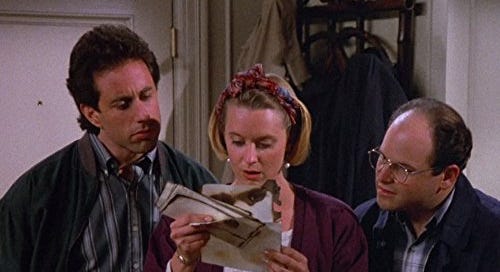



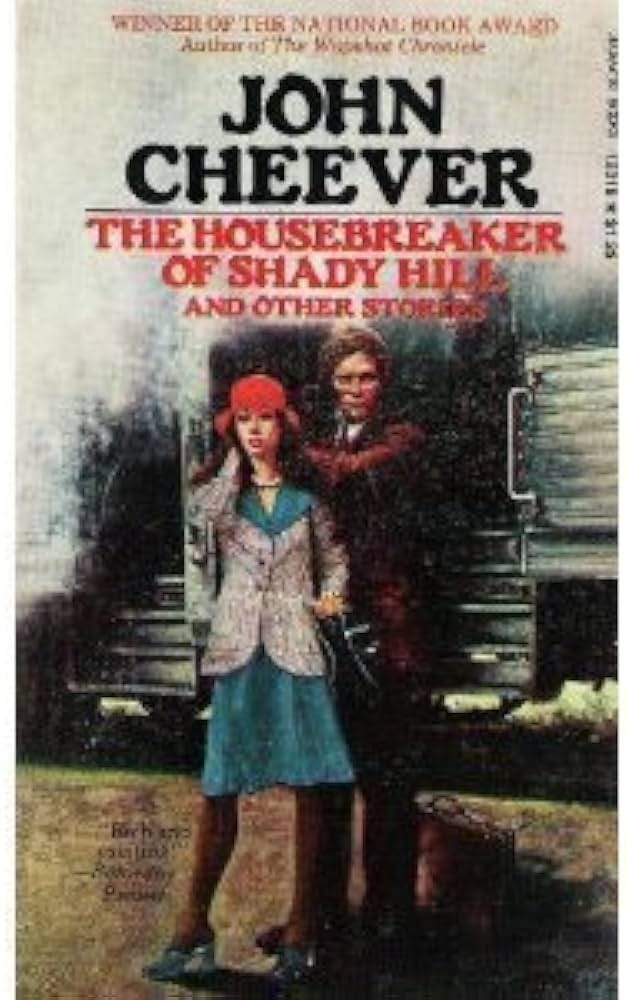
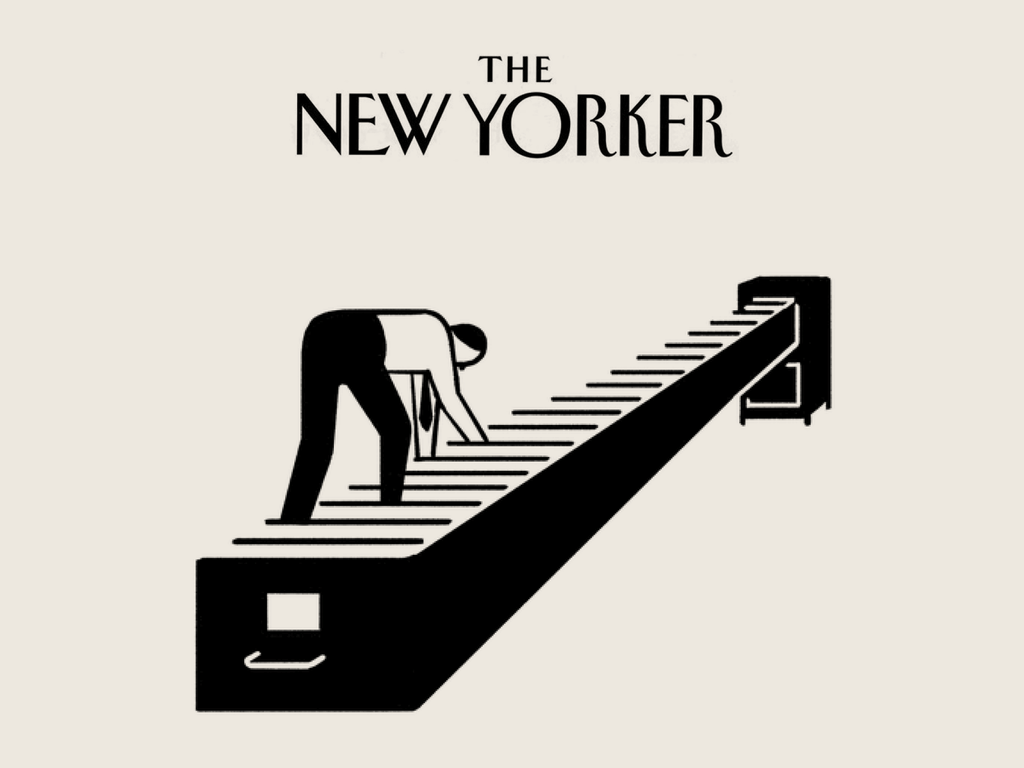
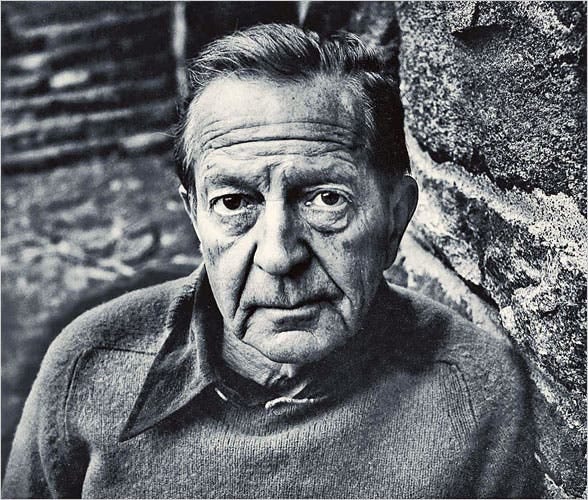
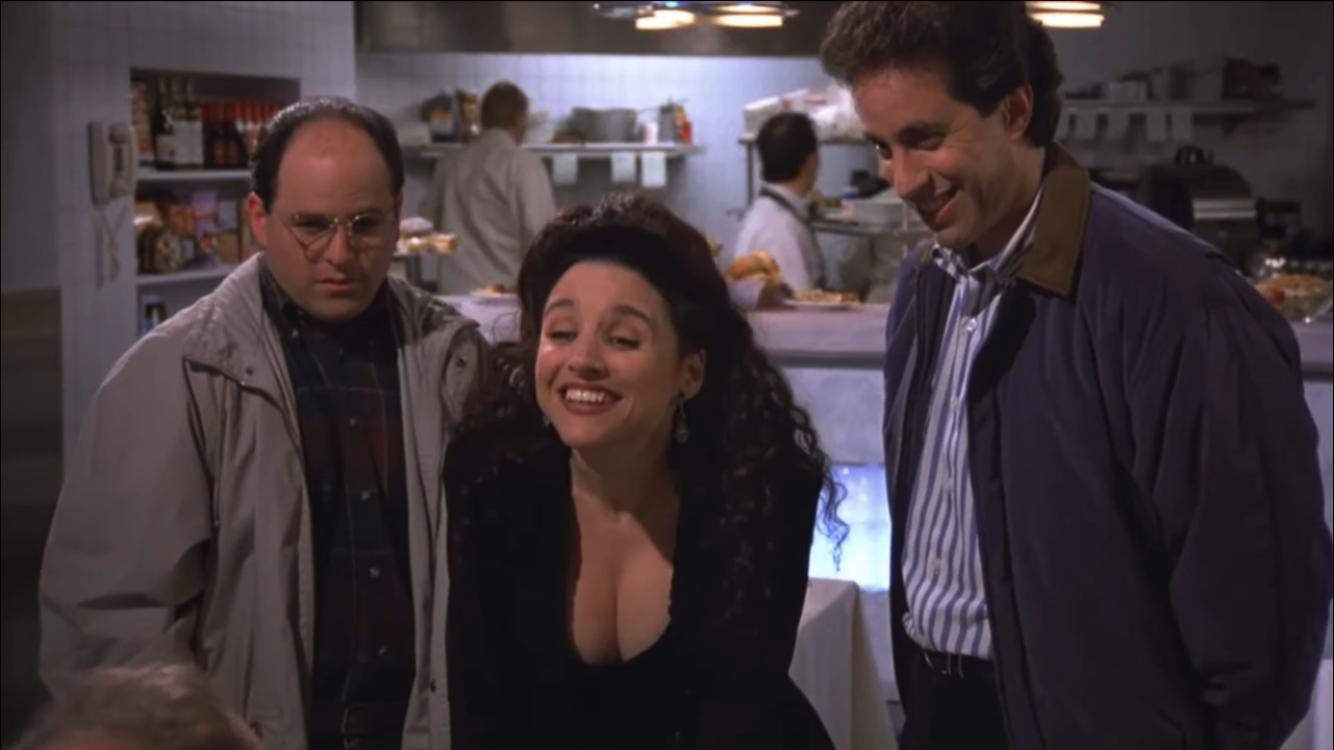
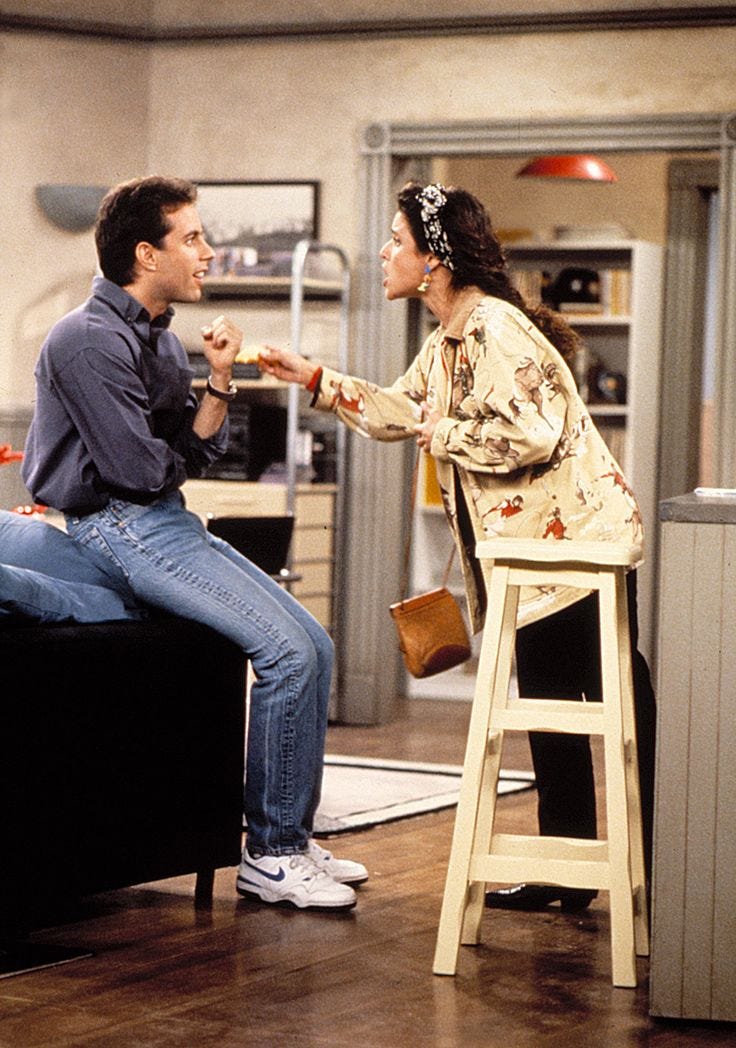
Cheever! I was pissed off when Mad Men came to an end. Cheever's who I want to re-read. The stories are going to feel as new as Mad Men episodes. Everything old as Cheever's New York is new again. Updike, my favorite, does the era, but Rabbit's not from the class that Cheever writes about. Those effortless short stories, many of which I never have read, that's what I've been longing to read since I finished Mad Men.